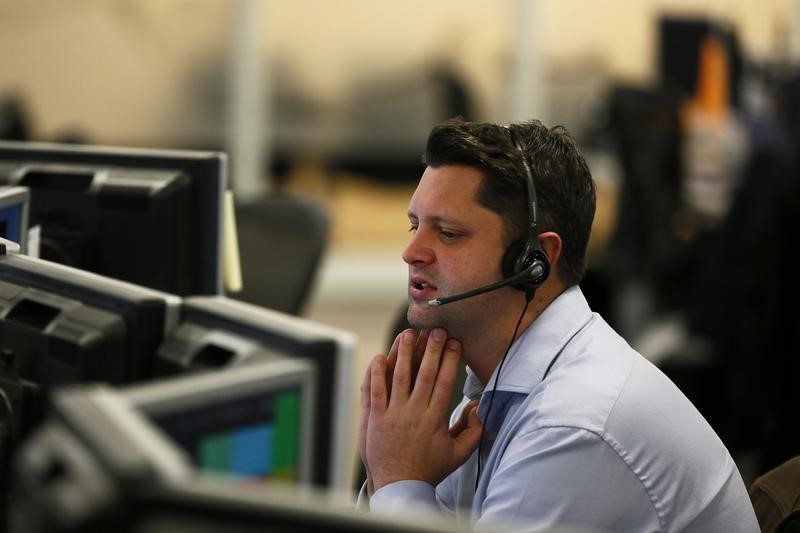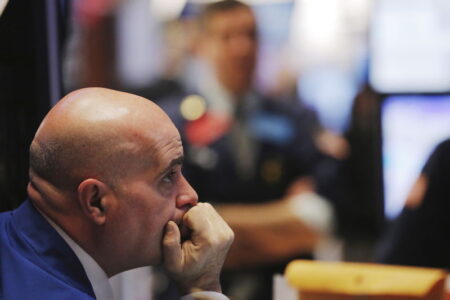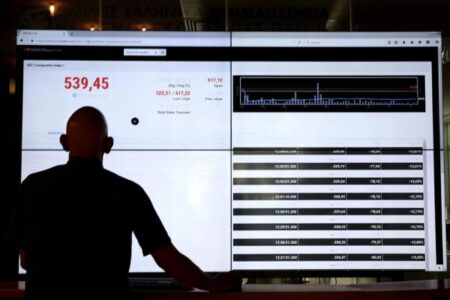By Lisa Baertlein
LOS ANGELES (Reuters) – Retailers Walmart (NYSE:), Target and Shein kicked off back-to-school sales early to stop Amazon.com (NASDAQ:)’s Prime Day event from siphoning U.S. sales of backpacks and laptops, helping advance the peak ocean shipping season by two months and boost already-high freight rates.
“It looks like this year, July is in fact the peak of peak (season), instead of the beginning,” said Stephanie Loomis, Rhenus Logistics’ head of ocean freight for the Americas.
Retailers account for roughly half of U.S. container import volumes. The ocean shipping industry handles about 80% of global trade.
Goods are moving earlier than normal since late last year, when Houthi rebel attacks near the Suez Canal trade shortcut forced cargo vessels to take the longer route around Africa. Denmark’s A.P. Moller-Maersk, a top container shipping provider, said on Wednesday that Red Sea disruptions have cascaded beyond the hard-hit Far East and Europe trade routes to its entire global network.
Nike executives have said they imported to the U.S. shipments of athletic shoes and apparel during the March-May quarter that they originally planned for the June-August quarter. Members of the Footwear Distributors and Retailers of America, who account for 95% of U.S. footwear sales, are among the importers who have accelerated shipments, said Matt Priest, the industry group’s CEO.
Some importers have also sped up timelines to beat higher costs from new tariffs on computer chips and electric-vehicle batteries, or to avoid upheavals during labor talks covering dockworkers on the U.S. East Coast and Gulf of Mexico, industry experts said.
The early demand surge helped propel the off-contract cost of sending a standard 40-foot (12-metre) container of toys, T-shirts or auto steering wheels from Shanghai to New York to nearly $10,000, double the cost in February, according to the Drewry World Container Index.
That has stoked worries that an extended period of elevated rates could translate into more price increases for inflation-squeezed U.S. shoppers.
HALLOWEEN IN JULY
Year-over-year U.S. container imports grew 11.9% in May and 10.4% in June, according to supply-chain software provider Descartes (NASDAQ:) Systems Group.
Those increases came as major retailers scheduled back-to-school sales earlier to counter Amazon’s Prime Day event on Tuesday and Wednesday this week, which the e-commerce giant said was its biggest ever. Amazon pushes its sellers to position inventory for sales events at least a month in advance.
“Now we’re seeing fall fashion, Halloween and year-end holiday products moving through the supply chain,” said Gene Seroka, executive director of the nation’s busiest seaport in Los Angeles.
Some of those goods are already in stores. Home Depot (NYSE:) this week begins selling its outdoor Halloween decor lineup, including “Skelly” a 12-foot (3.7-meter) robotic skeleton.
Seroka expects robust imports in July, noting that there are 63 ships en route to the Los Angeles and Long Beach port complex, versus 52 to 55 typically.
Logistics executives are trying to avoid a repeat of the supply-chain upheavals that followed former President Trump’s China tariffs, the pandemic’s start and the Red Sea attacks, Priest said.
“These last few years have really created, for lack of a better term, PTSD,” Priest said, referring to post-traumatic stress disorder.
The early start to peak ocean shipping could also mean an early end to soaring rates that have some shippers fearing a return of record container freight prices.
“It’s possible that we’ll see peak demand in July and August, and some easing of demand starting in September,” said Judah Levine, head of research at Freightos, an international freight booking and payments platform.
Read the full article here
















